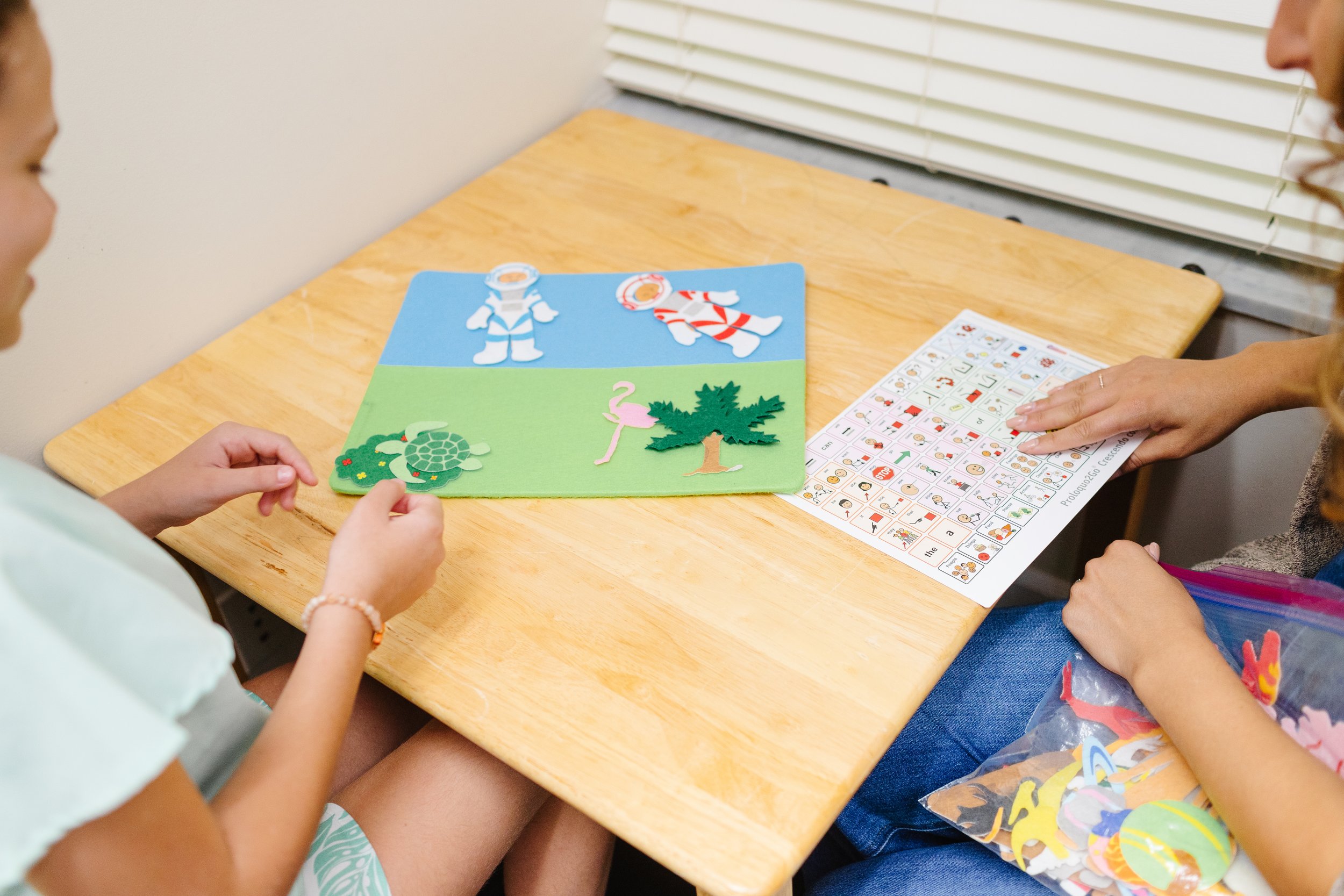
Book a free 15-minute consultation call with us!
Speech and Language Screening
Are you unsure if your child needs a comprehensive speech and language evaluation? We conduct speech and language screenings to determine whether or not a full evaluation is necessary.
Speech and Language Evaluation
We provide comprehensive and individualized speech and language evaluations in our office only. While standardized assessments may be appropriate for some children, they are not a one-size-fits-all option. This is why we also offer strengths-based informal assessments to determine the best starting point for therapy!
Speech and Language Therapy
We offer individualized, one-on-one treatment in our office, virtually, or in the comfort of your home*.
*in-home therapy subject to time minimum and/or travel fees.
Family Coaching
Whether you need guidance on how to promote speech and language skills at home or you want to learn more about how to communicate with your AAC learner, we are happy to provide family coaching and education!
AAC Evaluations
We provide pediatric Augmentative and Alternative Communication (AAC) evaluations to find the best tools for your child’s unique communication needs.
Presentations
We deliver presentations about speech and language development, gestalt language processing, and AAC implementation to audiences of all sizes: from a small family, to parents at a preschool, to larger groups. Specific presentation topics can be tailored to suit your needs.
-
Language is the comprehension and use of various modalities of communication, such as verbal speech, written communication, and/or a communication symbol system. Language is broken down into two subtypes: receptive language and expressive language. Receptive Language skills describe language comprehension, which involves attention, following directions, understanding questions and comments, as well as receptive vocabulary. Expressive Language how an individual communicates their wants and needs. It includes use of communication across modalities, including use of facial expressions, gestures, spoken language, communication symbols and use of expressive vocabulary.
-
Articulation involves the production of speech and describes how an individual makes speech sounds using their articulators (i.e. the mouth, the lips, the tongue). Some individuals may have difficulty producing a specific speech sound. For example, if an individual is having difficulty with their “r” sound, they may produce the word “wing” instead of “wing”.
For more information regarding speech sound disorders, click here
-
Fluency Disorders are speech disorders characterized by sound or word repetitions, prolongations, and interruptions in speech. They are most commonly known as “stuttering disorders”. Some individuals may also have secondary behaviors associated with stuttering, such as facial grimacing or body tightening during a moment of stuttering.
-
Augmentative and Alternative Communication includes all various modalities of communication and expression. It can involve the use of symbols, gestures, speech generating devices, communication boards, or computers to assist individuals in expressing themselves. Augmentative Communication is the use of one or more modalities to supplement verbal speech, while Alternative Communication is the use of one or more modalities to replace verbal speech.
-
Gestalt language processors learn language in chunks, rather than in single units like analytic language processors. Oftentimes, these language chunks are often seen as echolalia. We have learned that echolalia serves a communicative purpose. For more information about Natural Language Acquisition, check out the resources below:
WHAT THEY’RE SAYING
“After searching extensively for a good fit, I felt comfortable as soon as I met Krista. Krista is positive, full of energy, supportive and honest. She worked very closely with our family to come up with an effective treatment plan. My daughter was able to meet her goals and continues to excel with the skills Krista has taught her!.“
